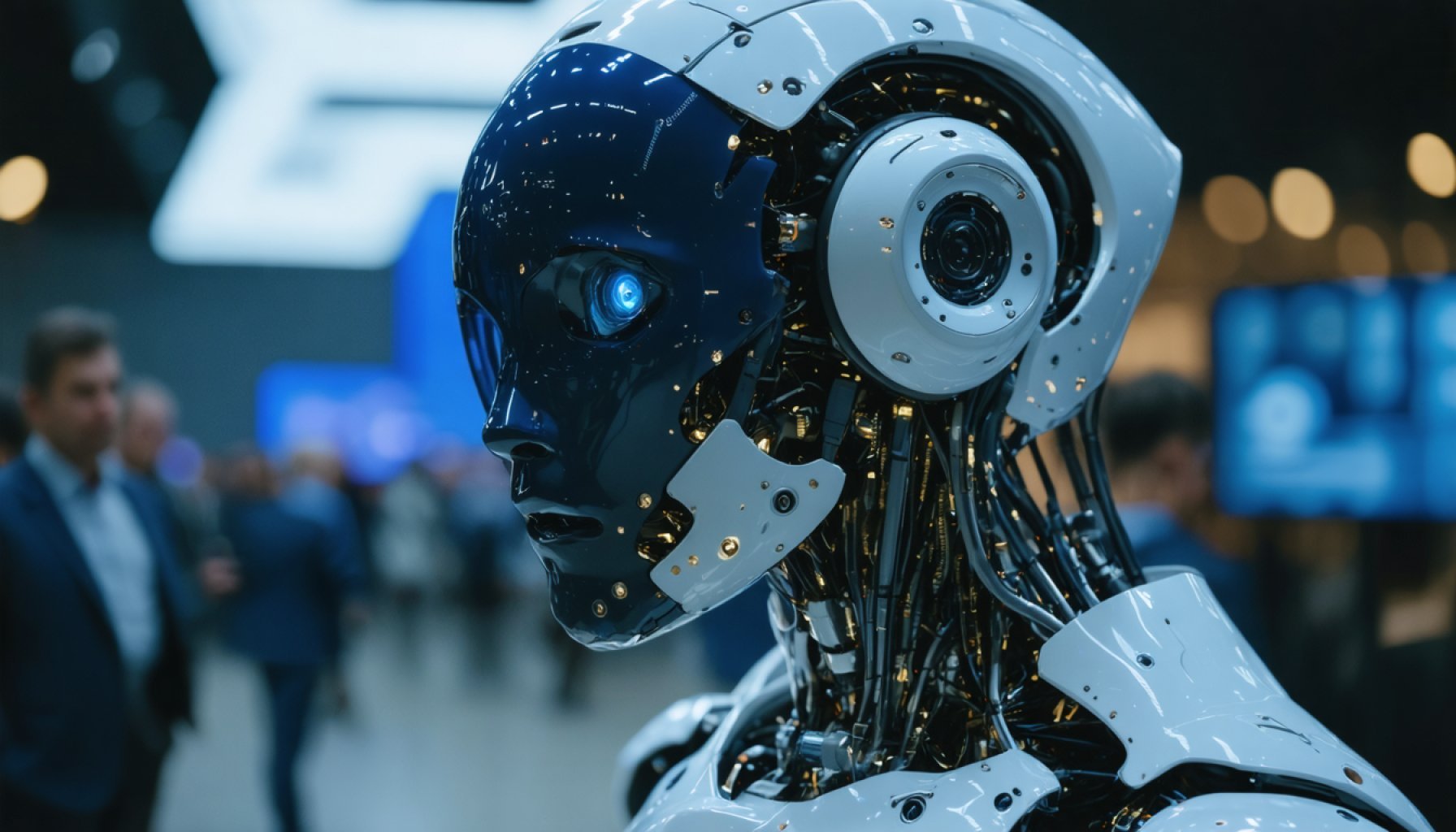- Elon Musk, despite his immense wealth, may not be the first trillionaire as AI emerges as the new frontier of prosperity.
- AI is transforming industries, with its market value expected to grow from $214.6 billion to $1,339.1 billion by 2030.
- Mark Cuban predicted the first trillionaire will master AI, highlighting its pivotal role in future wealth generation.
- $50 billion was invested in AI startups last year, signaling strong investor confidence and a booming sector.
- Tech giants like Google and Microsoft are leading in AI, reshaping industries amidst fierce competition.
- AI-driven automation is anticipated to redefine job functions significantly by 2030.
- Success in the future hinges on embracing and understanding AI, as those who do not may be left behind.
A man awash in endless possibilities sits poised on the precipice of unprecedented wealth. Elon Musk, the billionaire visionary behind Tesla and SpaceX, reigns as the wealthiest person alive, yet his journey to a trillion dollars remains elusive. Beyond the mammoth numbers of his current fortune lies a new frontier of prosperity—guided not by electric cars or space flights, but by the innovative edge of artificial intelligence.
AI is not science fiction anymore; it pervades every facet of our lives, redefining how industries thrive. What used to be speculative musings are now real numbers: a sector valued at $214.6 billion that’s projected to surge to $1,339.1 billion by 2030. Herein lies the heart of a prediction made by Mark Cuban at the SXSW festival in 2017. Mastery of AI, he claimed, would crown the world’s first trillionaire—not Musk, nor Bezos, but someone leveraging AI’s capabilities in ways unimagined.
Investment dollars flood AI’s promising landscape. A staggering $50 billion funneled into AI startups last year by venture capitalists fuels a technological boom exceeding the wildest dreams of innovators. Giants like Google and Microsoft power forward, amidst a theater of fierce competition and change, as McKinsey foresees AI-driven automation reshaping a significant portion of job functions by 2030.
Meanwhile, the financial seas Musk navigates remain tempestuous, with Tesla’s fluctuating stock dedicatedly entwining with his fortune. Yet, this unpredictable path marks only part of the broader AI expedition. The key takeaway? Embrace learning, adapt, and ride the AI wave. As technology hurtles forward, those who fail to grasp AI’s evolution risk fading into obsolescence, eclipsed by the new age of digital wizards.
The AI Revolution: How It Could Forge the World’s First Trillionaire
The Role of AI in Business and Beyond
Artificial Intelligence (AI) is poised to redefine not just industries, but the global economy itself. The AI industry, currently valued at over $214 billion, is projected to grow exponentially, reaching $1,339 billion by 2030. This unprecedented growth creates myriad opportunities, leading to speculation that an AI magnate could be the first trillionaire, as noted by Mark Cuban at the 2017 SXSW festival.
How-To Steps & Life Hacks: Leveraging AI for Business Growth
1. Understand AI Applications: Dive into AI’s practical uses in your industry. Whether it’s automation, data analytics, or customer service, understanding these can give businesses a competitive edge.
2. Invest in AI Education: Learn programming and AI fundamentals through online courses and certifications. Platforms like Coursera and edX offer AI-focused courses from top universities.
3. Integrate AI Solutions: Start small with tools like chatbots or AI-driven analytics platforms. Cloud-based solutions from IBM, Amazon, and Google are accessible ways for businesses to begin their AI journey.
Real-World Use Cases
– Healthcare: AI improves disease diagnosis and personalizes treatment plans, helping healthcare providers improve patient outcomes while reducing costs.
– Finance: AI enhances fraud detection and customer service through data analysis, adding layers of security and improving user experience.
– Retail: AI optimizes logistics and inventory management, forecasting demands accurately and reducing waste.
Market Forecasts & Industry Trends
Venture capital investment in AI startups reached $50 billion last year, highlighting significant interest and trust in the sector. McKinsey predicts AI-driven automation will transform various job functions by 2030, underscoring the imperative to adapt.
Reviews & Comparisons: Noteworthy AI Tools
– OpenAI’s GPT Models: Leading the pack, OpenAI’s language models assist in content generation and customer service solutions.
– IBM Watson: Known for its natural language processing and machine learning capabilities, Watson is a go-to choice for businesses seeking sophisticated AI solutions.
Controversies & Limitations
AI’s rise isn’t without challenges. Ethical concerns, such as bias in algorithms, data privacy, and job displacement, highlight the importance of responsible AI development. Ensuring AI systems are transparent and fair is crucial for gaining public trust.
Security & Sustainability
To sustain AI’s momentum, cybersecurity and energy efficiency must be prioritized. AI systems depend on vast amounts of data and computational power, raising questions about environmental impact and data compliance.
Insights & Predictions
By 2030, AI will extensively influence daily life and business practices. Companies integrating AI early and effectively could dominate their sectors. The prediction isn’t just about technology but about leveraging it strategically to solve problems and generate value.
Pros & Cons Overview
Pros: Efficiency improvements, enhanced customer experiences, new business models, greater innovation potential.
Cons: Ethical considerations, potential job displacement, high resource consumption, and privacy issues.
Actionable Recommendations
1. Stay Informed: Regularly read industry reports and attend AI-focused webinars to keep up with the latest trends and breakthroughs.
2. Experiment with AI tools: Use free AI tools to automate small tasks and scale up as you gain confidence.
3. Collaborate with AI Experts: Partner with AI consultants or firms to explore advanced integrations that align with your business goals.
For more insight, explore resources on McKinsey and Tesla.
By embracing AI now, businesses can position themselves advantageously for a future where AI isn’t just a tool, but the catalyst for achieving unprecedented success.




















